In reference to my previous question I just have to change most part of the code and use function call. Now the file can read and print as expected, but I noticed that after when it goes to the expected fileReader and prints the file, it automatically exited by calling choiceReader(case: else ) function which is not the expected function to call. My expectation is that algorithm() will be the next call. Please what am I missing here again?
The new code is:
#include <openssl/ssl.h>
#include <openssl/err.h>
#include <string.h>
#include <stdio.h>
#include <stdlib.h>
#include <time.h>
int success = 0;
char counter[1000];//used to monitor the read file length
int c;
size_t cipher_len; // size_t is sizeof(type)
unsigned char* ciphertext;
unsigned char plainpassword[] = "00000";
unsigned char* password = &plainpassword[0];
unsigned char salt[8];
unsigned char key[16];
unsigned char iv[16];
FILE *fp;
FILE *fptr;
char* plaintext = "To be or not to be is the question.";
char dict[] = "0123456789ABCDEFGHIJKLMNOPQRSTUVWXYZabcdefghijklmnopqrstuvwxyz";
int decryptedtext_len, ciphertext_len, dict_len;
char* ciphertext_base64;
unsigned char *plaintexts;
int len;
int plaintext_len;
void handleOpenSSLErrors(void)
{
ERR_print_errors_fp(stderr);
abort();
}
unsigned char* decrypt(unsigned char *ciphertext, int ciphertext_len, unsigned char *key, unsigned char *iv ){
EVP_CIPHER_CTX *ctx;
unsigned char* plaintext = malloc(ciphertext_len);
bzero(plaintext,ciphertext_len);
/* Create and initialise the context */
if(!(ctx = EVP_CIPHER_CTX_new())) handleOpenSSLErrors();
/* Initialise the decryption operation. IMPORTANT - ensure you use a key
* and IV size appropriate for your cipher
* IV size for *most* modes is the same as the block size. For AES this
* is 128 bits */
if(1 != EVP_DecryptInit_ex(ctx, EVP_aes_128_cbc(), NULL, key, iv))
handleOpenSSLErrors();
EVP_CIPHER_CTX_set_key_length(ctx, EVP_MAX_KEY_LENGTH);
/* Provide the message to be decrypted, and obtain the plaintext output.
* EVP_DecryptUpdate can be called multiple times if necessary
*/
if(1 != EVP_DecryptUpdate(ctx, plaintext, &len, ciphertext, ciphertext_len))
handleOpenSSLErrors();
plaintext_len = len;
/* Finalise the decryption. Further plaintext bytes may be written at
* this stage.
*/
// return 1 if decryption successful, otherwise 0
if(1 == EVP_DecryptFinal_ex(ctx, plaintext + len, &len))
success = 1;
plaintext_len += len;
/* Add the null terminator */
plaintext[plaintext_len] = 0;
/* Clean up */
EVP_CIPHER_CTX_free(ctx);
//delete [] plaintext;
return plaintext;
}
size_t calcDecodeLength(char* b64input) {
size_t len = strlen(b64input), padding = 0;
if (b64input[len-1] == '=' && b64input[len-2] == '=') //last two chars are =
padding = 2;
else if (b64input[len-1] == '=') //last char is =
padding = 1;
return (len*3)/4 - padding;
}
void Base64Decode( char* b64message, unsigned char** buffer, size_t* length) {
BIO *bio, *b64; // A BIO is an I/O strean abstraction
int decodeLen = calcDecodeLength(b64message);
*buffer = (unsigned char*)malloc(decodeLen + 1);
(*buffer)[decodeLen] = '\0';
bio = BIO_new_mem_buf(b64message, -1);
b64 = BIO_new(BIO_f_base64());
bio = BIO_push(b64, bio);
//BIO_set_flags(bio, BIO_FLAGS_BASE64_NO_NL); //Do not use newlines to flush buffer
*length = BIO_read(bio, *buffer, strlen(b64message));
BIO_free_all(bio);
}
void initAES(const unsigned char *pass, unsigned char* salt, unsigned char* key, unsigned char* iv )
{
//initialisatio of key and iv with 0
bzero(key,sizeof(key));
bzero(iv,sizeof(iv));
EVP_BytesToKey(EVP_aes_128_cbc(), EVP_sha1(), salt, pass, strlen(pass), 1, key, iv);
}
int checkPlaintext(char* plaintext, char* result){
int length = 10; // we just check the first then characters
return strncmp(plaintext, result, length);
}
//this tries to crack the password.
int algorithm(){
time_t begin = time(NULL);
for(int i=0; i<dict_len; i++)
for(int j=0; j<dict_len; j++)
for(int k=0; k<dict_len; k++)
for(int l=0; l<dict_len; l++)
for(int m=0; m<dict_len; m++){
*password = dict[i];
*(password+1) = dict[j];
*(password+2) = dict[k];
*(password+3) = dict[l];
*(password+4) = dict[m];
initAES(password, salt, key, iv);
unsigned char* result = decrypt(ciphertext, cipher_len, key, iv);
if (success == 1){
if(checkPlaintext(plaintext, result)==0){
printf("Password is %s\n", password);
time_t end = time(NULL);
printf("Time elpased is %ld seconds", (end - begin));
return 0;
}
}
free(result);
}
}
// this given cipher text
int firstReader(){
if ((fp = fopen("givenfile.txt", "r")) == NULL) {
printf("Error! File cannot be opened.");
exit(1);
}
fscanf(fp, "%[^\n]", counter);
printf("Cipher text is:\n%s", counter);
printf("\nCracking cipher text one in progress ....\n");
algorithm();//calls the algorithm function
}
int secondReader(){
if ((fptr = fopen("cipher1.txt", "r")) == NULL) {
printf("Error! File cannot be opened.");
// Program exits if the file pointer returns NULL.
exit(1);
}
fscanf(fptr, "%[^\n]", counter);
printf("Cipher text is:\n%s", counter);
printf("\nCracking cipher text tow in progress ....\n");
algorithm(); // calls the algorithm function
}
// reads user's choice and performs the next operation accordingly
void choiceReader(){
printf("User's application guide.\nIst cipher decryption = 1\nSecond cipher decryption = 2\nQuit = Any other input\n");
scanf("%d", &c);
if(c==1){
firstReader();
}
if(c==2){
secondReader();
}
else{
printf("Application Exited ...");
exit(1);
}
}
int main (void)
{
//the core function that controls the user's action.
choiceReader();
dict_len = strlen(dict);
if (c==1){
ciphertext_base64 = (char*) fp;
}
if (c==2){
ciphertext_base64 = (char*) fptr;
}
printf(ciphertext_base64);
ERR_load_crypto_strings();
Base64Decode(ciphertext_base64, &ciphertext, &cipher_len);
// retrive the slater from ciphertext (binary)
if (strncmp((const char*)ciphertext,"Salted__",8) == 0) { // find the keyword "Salted__"
memcpy(salt,&ciphertext[8],8);
ciphertext += 16;
cipher_len -= 16;
}
// Clean up
fclose(fptr);
EVP_cleanup();
ERR_free_strings();
return 0;
}
The output is screenshot below:
